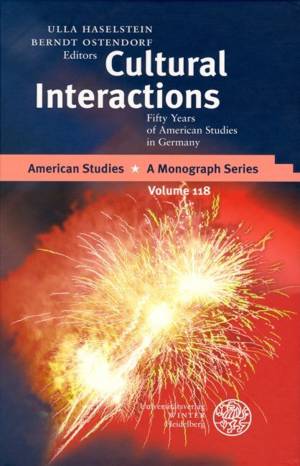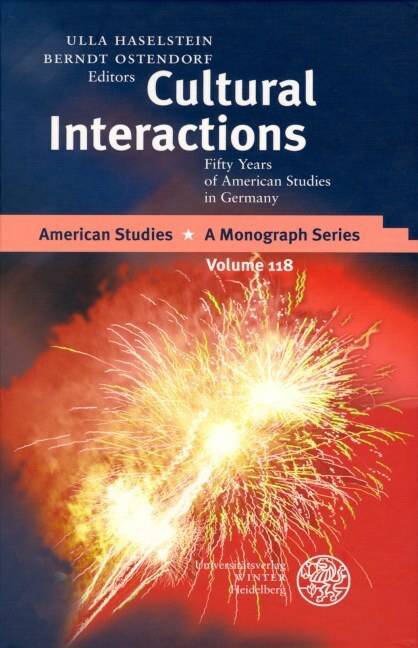
- Retrait gratuit dans votre magasin Club
- 7.000.000 titres dans notre catalogue
- Payer en toute sécurité
- Toujours un magasin près de chez vous
- Retrait gratuit dans votre magasin Club
- 7.000.000 titres dans notre catalogue
- Payer en toute sécurité
- Toujours un magasin près de chez vous
Cultural Interactions
Fifty Years of American Studies in Germany
57,45 €
+ 114 points
Description
The present volume celebrates the 50th anniversary of the German Association of American Studies. It is testimony to 50 years of academic scholarship in Germany. The retrospective occurs at a crucial moment in transatlantic relations marked by the end of the Cold War and a noticeable realignment of American cultural politics in a globalizing, transnational world. The first section is devoted to memories of the beginnings of American Studies after the war; returnees and local renegades from English, History or Politics began mapping out the field between these competing disciplines, as Ursula Brumm and Reinhard Doerries record in vivid detail. The second section addresses moral and political perspectives of globalization; marshalling Immanuel Kant and Hannah Arendt, Seyla Benhabib places transatlantic negotiations between the twin poles of hospitality and sovereignty: Erna Brodber argues for a Caribbean cultural space with Marcus Garvey's impact on the US; Michael Kammen records the contacts and collusions between history and neighboring disciplines contributing to American Studies. Workshops were devoted to the postwar efforts to transcend the limits of Old World traditions and to establish a German perspective in American Studies. The interdisciplinary approach was reflected by topics such as the impact of the Frankfurt school on the formation of German American Studies; American hegemony in a globalized world; American policies of immigration;the impact of American popular culture; new aesthetic forms in the US. A fair cross-section of research interests and practices of American Studies in Germany is represented by workshop contributors Ilka Saal, Ulf Schulenburg, Nicole Waller, Jochen Achilles, Herbert Grabes, Michaela Giesenkirchen, Sieglinde Lemke, Knud Krakau, Andreas Paulus, Ina Bergmann, Gabriele Linke, Rainer Schnoor, and Michael Dreyer.
Spécifications
Parties prenantes
- Editeur:
Contenu
- Nombre de pages :
- 274
- Langue:
- Anglais
- Collection :
- Tome:
- n° 118
Caractéristiques
- EAN:
- 9783825350796
- Date de parution :
- 08-01-05
- Format:
- Livre relié
- Format numérique:
- Genaaid
- Dimensions :
- 134 mm x 210 mm
- Poids :
- 4290 g






